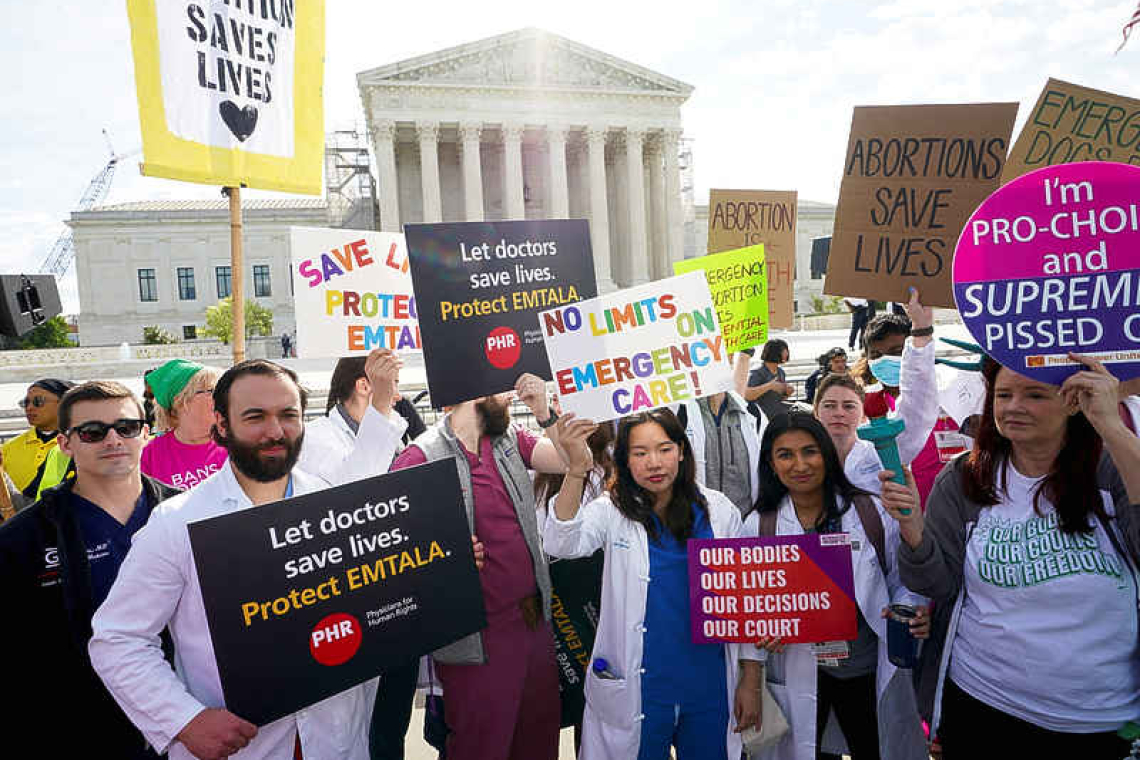WASHINGTON--U.S. Supreme Court justices, wading back into the battle over abortion access, appeared divided on Wednesday in a case pitting Idaho's strict Republican-backed abortion ban against a federal law that ensures that patients can receive emergency care.
The justices heard arguments in an appeal by Idaho officials of a lower court's ruling that found that the 1986 U.S. law at issue, the Emergency Medical Treatment and Labor Act (EMTALA), supersedes the state's near-total ban in the relatively rare circumstances when the two conflict. President Joe Biden's administration, which sued Idaho over the abortion law, has urged the justices to uphold that ruling. The court has a 6-3 conservative majority. No consensus seemed to emerge among the conservative justices, who expressed concerns including what protections federal law extends to "unborn children" and whether Congress had clearly spelled out that EMTALA can mandate abortion in certain emergency cases. Conservative Justice Brett Kavanaugh asked U.S. Solicitor General Elizabeth Prelogar, representing the administration, to respond to Idaho's argument that EMTALA was meant to prevent emergency rooms from so-called patient dumping - turning away uninsured patients - instead of addressing "abortion or other specific kinds of care." Prelogar said Congress used EMTALA to set a "baseline national standard of care" to ensure urgent conditions are addressed. "Idaho cannot criminalize the essential care that EMTALA requires," Prelogar added. The case has led the Supreme Court to revisit the fraught legal landscape it created with its June 2022 decision overturning the 1973 Roe v. Wade ruling that had legalized abortion nationwide. Idaho is one of seven states to put in place in the past two years a near-total abortion ban with no exception to protect the health of pregnant patients, Prelogar said. Idaho's so-called abortion "trigger" law, adopted in 2020, automatically took effect upon Roe's reversal. The state law bans nearly all abortions unless needed to prevent a mother's death, threatening doctors who violate it with two to five years in prison and loss of their medical license. At the same time, EMTALA requires hospitals that receive funding under the federal Medicare programme to "stabilize" patients with emergency medical conditions. Hospitals that violate EMTALA can face lawsuits by injured patients, civil fines and potentially the loss of Medicare funding. The liberal justices pressed Joshua Turner, the lawyer for Idaho, to explain why the state permits emergency abortions to prevent the woman's death but not to protect her health. Terminating a pregnancy may be needed to address numerous conditions in the woman that could lead to seizures, stroke, organ damage or the loss of her uterus, according to medical experts. "Within rare cases, there's a significant number where the woman ... her life is not in peril but she's going to lose her reproductive organs, she's going to lose the ability to have children in the future, unless an abortion takes place," liberal Justice Elena Kagan said. In such cases, Kagan added, "Idaho says, 'Sorry no abortion here,' and the result is that these patients are now helicoptered out of state." Turner called these "difficult" situations that raise "tough medical questions that implicate deeply theological and moral questions."







